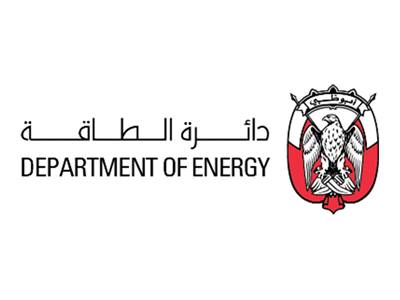
DoE Issues District Cooling Regulations for the Emirate of Abu Dhabi
The Abu Dhabi Department of Energy (DoE) issued the District Cooling Regulations and the District Cooling Applicability Regulations, recently approved by the Abu Dhabi Executive Council.
The Abu Dhabi Government thus becomes the first administration in the Middle East and North Africa region to set up a complete integrated system for district cooling. This, in turn, reflects the Department’s commitment to taking the lead in the regional and global energy sector, highlighting its focus on developing infrastructure, ensuring energy efficiency, and promoting sustainable solutions.
District Cooling is a centralised cooling production and distribution system that uses an insulated underground pipe network. The system is usually used for cooling commercial buildings, mixed-use buildings, and densely populated areas.
District cooling systems are the most environmentally friendly option when it comes to air conditioning; they reduce energy consumption up to 40% more than the best conventional cooling system available, all while having low CO2 emission levels. In terms of investment, district cooling systems are more efficient in medium- and high-density communities, according to life-cycle cost analysis, where costs tend to be the lowest in more densely populated areas.
The new regulations aim to unify standards, integrate efforts to regulate the sector, ensure the highest quality and competitiveness for energy services, and protect consumer rights. The regulations also include clauses to enhance energy efficiency, protect the environment, and encourage investments in the sector.
The District Cooling Regulations provide a regulatory framework for these activities in the Emirate of Abu Dhabi, offering investors, consumers, and the public safe, efficient, and economical cooling services. This includes outlines for the regulatory, technical, and financial requirements for licensing, regulation, and initiation of district cooling activities.
The District Cooling Applicability Regulations aim to ensure the optimal use of energy infrastructure, and to promote more efficient cooling systems for areas where it can be applied efficiently. In addition, it supports expanding the scope of the district cooling system in the emirate by managing demand for it and encouraging the use of this technology.
DoE Chairman His Excellency Eng. Awaidha Murshed Al Marar said: "The Government of Abu Dhabi has clear strategic vision and directives to improve efficiency in the energy sector and promote more sustainable systems and infrastructure. This served as the starting point for us to develop these regulations for the district cooling sector, and we began developing an economic and ecological roadmap for this promising industry. Furthermore, it is our aim to encourage the adoption of advanced technologies to attract investment and increase the contribution of the district cooling sector to economic diversification."
H.E. Al Marar reiterated the DoE’s dedication to upholding consumer rights and transparency and fairness for beneficiaries of its services, adding: "We are working to manage energy demand with procedures that rely on advanced technologies, such as district cooling. The new Regulations allow us to better address the increasing demand for services, in addition to standardising the sector, guaranteeing consumer rights, and establishing a transparent and competitive investment environment."
The Department will be organising workshops to familiarise its partners with the Executive Regulations, which will enable them to support Abu Dhabi’s efforts to promote energy efficiency, manage demand, ensure environmental sustainability, and develop infrastructure. The DoE’s partners include the Department of Urban Planning and Municipalities, real estate developers, district cooling providers, district cooling distributors, district cooling retailers, property owners and property management companies.
DoE Undersecretary H.E. Mohammed bin Jarsh Al Falasi said: "The Department of Energy is committed to supporting the Government’s efforts to ensure the local community’s welfare and offer high-quality logistics services to various economic sectors. The Regulations for the district cooling sector will not only provide a reference, but also establish a consumer-centric culture and support the emirate’s economic development."
"We will continue to work with our partners to implement the Regulations, set priorities for the coming period, and encourage innovative and sustainable initiatives in the district cooling sector," H.E. Al Falasi added. "We are confident that this trend will be a turning point that reflects positively on the quality of services provided by our partners in the sector."
Furthermore, the Abu Dhabi Department of Energy outlined the requirements for switching from conventional cooling to district cooling systems in the regulations, including the availability of sufficient water supplies (drinking water, desalinated, or sea water) that are up to the quality standards. Another condition is that the cost of implementing a district cooling system must be below the cost of opting for the most optimal of conventional cooling methods. The cooling station must also have access to enough energy supplies to operate.
The DoE had drafted the regulations in line with Law No. (11) for 2018, which mandated the Department with protecting consumer rights, providing a stable environment for investors, and improving energy efficiency. Also, part of the DoE’s mandate is regulating district cooling activities, providing licensing for the entities and individuals involved in the sector, and monitoring their compliance with quality standards.
